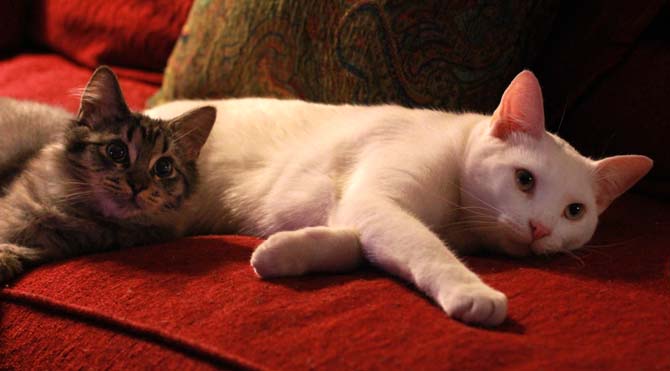To see a video on what student’s think about the blue laws a year later, click here.
Jennings Benner and Cody Lasyone casually strolled the frozen foods aisle of Winn-Dixie on Sunday evening, a fifth of vodka in hand, debating which pizza would best fit their movie night.Benner, University alumna, said they intended on “kicking back” with a few drinks after a stressful week. But Lasyone said he easily remembers just one year ago when their plans would have been thwarted by the law. This Sunday will mark the one-year anniversary of East Baton Rouge Parish retailers’ ability to sell wine and liquor legally on Sundays. And though many people say the change was necessary, retailers said they aren’t consistently seeing increased revenue from buying booze on Sundays. On Oct. 20, 2007, Baton Rouge residents voted overwhelmingly to amend the parish’s Wine, Beer and Liquor ordinance, also called the blue laws, that forbade the sale of alcoholic beverages other than beer on Sundays. The vote then went to the Metropolitan Council on Oct. 24, and members voted seven to two to change the blue laws that had previously been in effect for nearly 50 years. Lasyone said the restrictions were an inconvenience on days when he enjoyed watching football while sipping on his favorite alcoholic drinks. “We’d usually just stock up the day before,” he said. “But it’s easier to just be able to run to the store if you need to.”Councilman Mike Walker, an advocate of the amendment to the blue laws, said the revised ordinance “just made sense.””It was time for a change,” Walker said. “We were being a bit hypocritical by not allowing people to buy certain types of alcohol.”Councilman Darrell Ourso also supported removing the restrictions. “It was more of a crutch that elected officials would hide behind because they thought there would be an uprising, or all sorts of evil would fall upon our community,” Ourso said. “But we haven’t seen that.”Luke Downey, University alumnus, said he purchases liquor every Sunday “to party.””People need to be more progressive,” he said. “There really shouldn’t even be an argument. People should be able to do what they want to do.”Councilman Ulysses Addison, an opponent of the amendment, refused to comment. Councilwoman Lorri Burgess, the only council member other than Addison to vote against the amendment, was not available for comment. Shakia Davis, kinesiology sophomore, said she doesn’t agree with the sale of alcohol on Sundays.”I’m a religious person, and we should keep Sundays holy,” Davis said. “It’s the Sabbath — that’s how it should be.”Ourso said he hasn’t seen any negative effects of the laws being repealed. “While the positives are there, there hasn’t been any bad social changes,” he said. “The only comments I’ve received are from people wondering why they still have to wait until 11 a.m. to buy alcohol on Sundays.”Complete statistics are not yet available, but there’s no preliminary evidence of an increase in alcohol-related accidents on Sundays, according to Helmut Schneider, director of the Highway Safety Research Group.”When I compare the nine months of DWI crashes from October 2006 to June 2007 with October 2007 to June 2008, I come up with 130 alcohol-related crashes [on Sundays] before and 105 alcohol-related crashes [on Sundays] after the Blue Law [amendment] was signed,” Schneider said in an e-mail to The Daily Reveille. Ourso said some positives include an “increase in livability” and the extra sales tax revenue to the parish. Sam Akasha, owner of Akasha Market on Bob Pettit Boulevard, said the extra day of sales has increased his businesses’ revenue by up to 40 percent. “We usually sell about $500 worth of alcohol on Sundays,” Akasha said. “People didn’t like not being able to buy liquor. They used to come over here, and we’d have to turn them away.”Abouzar Qalandari, a sales clerk at Akasha Market, said Sunday alcohol sales cater to the store’s customers.”A lot of the people who shop here work all week,” Qalandari said. “Sunday is usually their only day to relax.”Jason Green, co-owner of Green’s Purple and Gold Liquoron Nicholson Drive, said Sunday sales are low, usually around $300 for the seven hours the store is open. “I thought it would have been a lot better,” Green said. “But any business is good business.”Some liquor stores returned to locking their doors on Sundays when the customers failed to show. Marcello’s Wine Cellar and Southdowns Discount Liquor and Cigarettes on Perkins Road both reported their sales on Sundays were too low to justify staying open. Jay Muller, manager of Southdowns, said he switched on the open sign for four Sundays, but the bottles stayed on the shelves. “It’s just not profitable for our business because people were just so used to not buying liquor on Sundays,” Muller said. “I asked customers if they wanted to, but they said it didn’t really matter.”The ordinance to limit alcohol sales on Sundays was based on religious blue laws restricting secular activities on Sunday.Elisabeth Hilton, undecided freshman, said the choice to purchase alcohol on Sundays should be personal. “I am a Christian, but I’m not one who thinks you’ll be condemned if you drink on Sundays,” she said. “It comes down to your own decision and who you are as a person. Society shouldn’t be able to sway you based on religion.”Rusty Yates, co-owner of Churchill’s Premium Cigars and Liquors on Jefferson Highway, said it should be the business owner’s choice to stay open. “There’s too much government interference in private enterprise,” Yates said. “There should be a certain amount of law, but they’re trying to control everything.”—-Contact Katie Kennedy at [email protected]
Blue laws cause mixed Sunday sales for businesses
October 21, 2008





